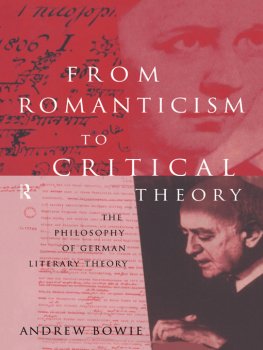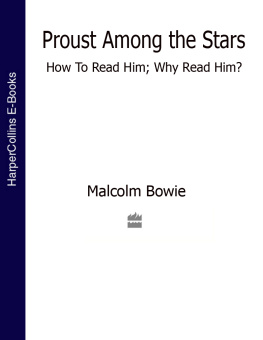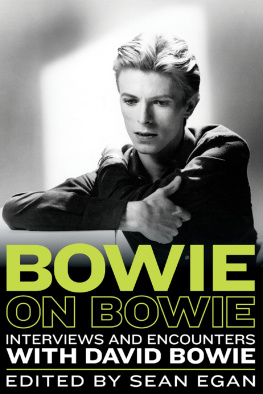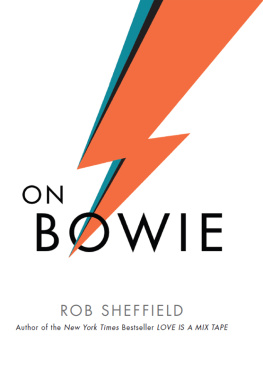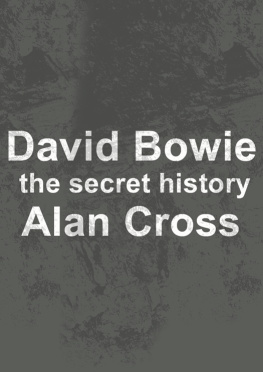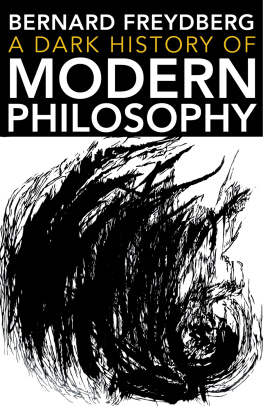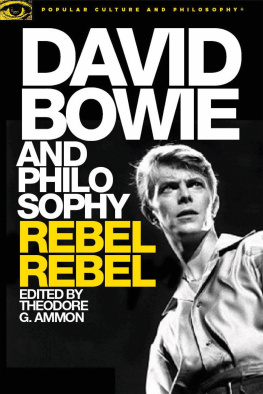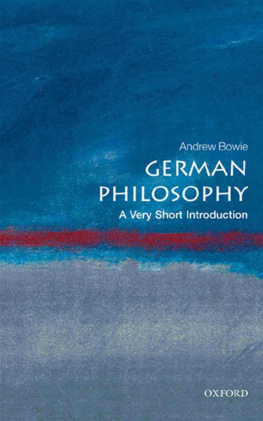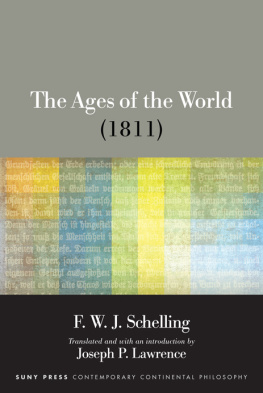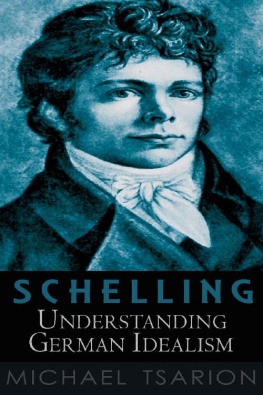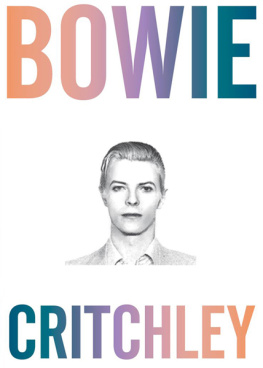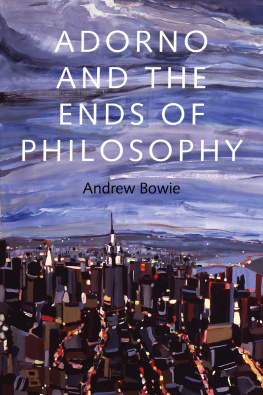Bowie - Schelling and Modern European Philosophy
Here you can read online Bowie - Schelling and Modern European Philosophy full text of the book (entire story) in english for free. Download pdf and epub, get meaning, cover and reviews about this ebook. year: 2011, publisher: Taylor & Francis (CAM), genre: Religion. Description of the work, (preface) as well as reviews are available. Best literature library LitArk.com created for fans of good reading and offers a wide selection of genres:
Romance novel
Science fiction
Adventure
Detective
Science
History
Home and family
Prose
Art
Politics
Computer
Non-fiction
Religion
Business
Children
Humor
Choose a favorite category and find really read worthwhile books. Enjoy immersion in the world of imagination, feel the emotions of the characters or learn something new for yourself, make an fascinating discovery.
Schelling and Modern European Philosophy: summary, description and annotation
We offer to read an annotation, description, summary or preface (depends on what the author of the book "Schelling and Modern European Philosophy" wrote himself). If you haven't found the necessary information about the book — write in the comments, we will try to find it.
Bowie: author's other books
Who wrote Schelling and Modern European Philosophy? Find out the surname, the name of the author of the book and a list of all author's works by series.
Schelling and Modern European Philosophy — read online for free the complete book (whole text) full work
Below is the text of the book, divided by pages. System saving the place of the last page read, allows you to conveniently read the book "Schelling and Modern European Philosophy" online for free, without having to search again every time where you left off. Put a bookmark, and you can go to the page where you finished reading at any time.
Font size:
Interval:
Bookmark:

EUROPEAN PHILOSOPHY
MODERN EUROPEAN
PHILOSOPHY

London and New York
First published 1993
by Routledge
11 New Fetter Lane, London EC4P 4EE
Simultaneously published in the USA and Canada
by Routledge
29 West 35th Street, New York, NY 10001
This edition published in the Taylor & Francis e-Library, 2001.
1993 Andrew Bowie
All rights reserved. No part of this book may be reprinted or reproduced or
utilized in any form or by any electronic, mechanical, or other means, now
known or hereafter invented, including photocopying and recording, or in any
information storage or retrieval system, without permission in writing from
the publishers.
British Library Cataloguing in Publication Data
A catalogue record for this book is available from the British Library.
Library of Congress Cataloging in Publication Data
Bowie, Andrew, 1952
Schelling and modern European philosophy: an introduction/Andrew Bowie.
p. cm.
Includes bibliographical references and index.
1. Schelling, Friedrich Wilhelm Joseph von, 17751854.
2. Idealism, German. I. Title.
B2898.B68 1993 93-13079
193--dc20 CIP
ISBN 0-415-10346-0 (hbk)
ISBN 0-415-10347-9 (pbk)
ISBN 0-203-00601-1 Master e-book ISBN
ISBN 0-203-17435-6 (Glassbook Format)
For Liz
I should like to thank the Alexander von Humboldt Foundation for enabling me to complete my work on Schelling in the idyllic and very appropriate surroundings of Tbingen. I am very grateful indeed to Manfred Frank, whose essential work in restoring the philosophical reputation of Schelling was my main inspiration, and whose friendship, advice, support, fine wines and congenial company made the work in Tbingen all the more enjoyable. Liz Bradburys company, forbearance during my protracted absences, persuasive defences of Hegel, and support in the midst of crises were vital. Peter Dews and I discussed many of Schellings ideas, Furtwnglers interpretations of Beethoven, and much else late at night in Tbingen, to my great profit, and his comments on the first draft were vital. Raymond Geuss obtained the necessary guarantee of publication for my initial more modest project of a translation and introduction to Schellings lectures On the History of Modern Philosophy, and made helpful suggestions when this book emerged together with that project. Anglia Polytechnic University kindly gave me leave of absence to take up the Humboldt Fellowship. The students on the European Thought and Literature degree at Anglia keep my faith in the power of great philosophy judging by their ability to come to terms with ideas that are wrongly seen as too difficult for them by many in British higher education. The Tbingen philosophy faculty offered an exemplary open-mindedness to differing approaches which is sorely absent in so many philosophy departments in Britain. Andrew Benjamin, Phil Blond, Rdiger Bubner, Matthew Festenstein, Heidrun Hesse, Nick Jardine, Chris Lawn, Peter Middleton, Julian Roberts, Cara Ryan, Kiernan Ryan, Birgit Sandkaulen-Bock, Simon Schaffer, Gianfranco Soldati, Bob Stern, Martin Swales, Nick Walker, other members of the Philosophisches Seminar at Tbingen, and many others were invaluable interlocutors at various times. Adrian Driscoll at Routledge was an exemplary editor. My Anglia colleague Henry Merritt restored my faith in computer technology in a crisis. My parents, as always, were enormously encouraging and supportive.
Andrew Bowie,
Tbingen and Cambridge
The significance of the work of Friedrich Wilhelm Joseph von Schelling (17751854) in the history of modern philosophy has only recently begun to be understood. For too long the importance of Schellings later work in particular was obscured by the demise of German Idealism, which led to him being seen as merely a precursor of Hegel. I want to argue that, in the light of the contemporary concern with the end of Western metaphysics and with post-metaphysical thinking, Schellings work is in need of reassessment. Most recent work on Schelling in English has continued to regard him as an adjunct to Hegel. This has meant that he is understood either as the target of Hegels revelation of previous philosophys failure to overcome immediacy, the failure to articulate the relationship of being and thinking within philosophy, or as merely an episode in the story which sees Hegel as definitive of all that happens in philosophy until Nietzsche and Heidegger begin the real process of liberation from Western metaphysics. In the following I will try to show that, rather than being merely a foil to Hegel, Schelling in fact helps define key structures in modern philosophy by revealing the flaws in Hegel in ways which help set the agenda for philosophy even today. My aim here is to facilitate access to Schellings work by a reconsideration of his philosophical project in the light both of the recent attempts to establish new conceptions of reason and of the attacks on the very notion of reason that have been associated with post-modern thinking.
Having dominated the philosophical scene until his death in 1831, Hegels philosophy was then subject to massive attack from many directions. What is too rarely realised is how significant Schellings contribution was to this attack. The fact is that some of the Young Hegelians heard Schellings lectures in Berlin in 18412, when he took up Hegels chair of philosophy, or were aware via others lecture notes of some of the content of these lectures, as well as of Schellings earlier criticisms of Hegel. Clearly Schelling was regarded, not least because of his undoubted conservatism in later life, as another enemy of the philosophy of the future (Feuerbach). This was in part an apt judgement, in that Schelling remained faithful to many Idealist conceptions even as he was undermining them in other ways. In histories of philosophy in the Idealist tradition, the vital stage is the highest and final one, which has to comprehend the preceding stages within itself. The aim, the common aim of the German Idealists from Fichte onwards, is nothing less than the completion of metaphysics, the understanding of the Absolute (the meaning of this notorious term will become clear later) in the light of Kants critiques of dogmatic metaphysics. In order to achieve this understanding, the philosopher has to make sure that his own philosophy is the last possible philosophy. For the later Schelling this was to be his positive philosophy, which would lead beyond Hegels Idealist system to a new historically based philosophical religion by showing the impossibility of a system of reason grounding itself. Schelling does lead beyond Hegel, but he does not achieve a higher synthesis: the ideas of the later Schelling that matter now are those that reveal the impossibility of the sort of metaphysics advocated by Hegel.
One hardly needs to suggest that the ambitions of the philosophy of the period of Schelling and Hegel belong to a bygone era. We are now more likely to ponder what comes after philosophy, given the failure of totalising projects like Hegels. The situation these days, as Richard Rorty puts it, is one where we find Hegel, Nietzsche, Heidegger, Derrida, and pragmatical commentators on Derrida like myself jostling for the position of historys first really radical anti-Platonist (Rorty 1991b p. 96). Rorty cites Michel Foucaults contention that the crucial danger now is that philosophers are doomed to find Hegel waiting patiently at the end of whatever road we travel (ibid.), because attempts to get beyond metaphysical concepts will always at some level presuppose precisely such concepts. The very notion of overcoming metaphysics keeps revealing itself as dialectically dependent on what is to be overcome. Schelling was one of the first philosophers to try to avoid the fate of really being Hegel despite oneself. In this he was followed by the Young Hegelians, who were the first to talk of the end of philosophy, much in the sense that has become familiar again in recent years.
Font size:
Interval:
Bookmark:
Similar books «Schelling and Modern European Philosophy»
Look at similar books to Schelling and Modern European Philosophy. We have selected literature similar in name and meaning in the hope of providing readers with more options to find new, interesting, not yet read works.
Discussion, reviews of the book Schelling and Modern European Philosophy and just readers' own opinions. Leave your comments, write what you think about the work, its meaning or the main characters. Specify what exactly you liked and what you didn't like, and why you think so.


